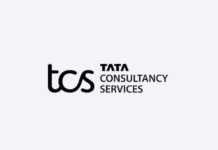Finances are important to business owners for a variety of reasons: it’s how you purchase materials and pay your employees, how you’re able to afford marketing, and it’s the whole reason you went into business in the first place. So it’s safe to say that your business’s finances are an important part of your business, and they should be safeguarded and handled properly— especially because they affect so many other parts of your business.
Because of this, it’s important to have business software that manages many aspects of your finances. Here’s a look at four aspects of finances that you should look for in business software.
#1: Billing
As you already know, billing is the process of requesting payment for your products or services. A billing solution as a part of your business software automates the invoicing process so that you don’t have to manually go in and do it yourself.
This frees up much of your time and allows you to focus on other parts of running a business that requires your attention. Of course, this isn’t completely hands-free on your part, so your billing function should also be easy to use, supporting different pricing models and also subscription cycles.
Displaying every single charge on your clients’ invoices rather than combining them into one creates more trust. This feature also ensures that your invoices are accurate, also creating trust among your customers. Finally, this feature of your software manages your revenue within the latest standards.
#2: Budgeting and Planning
Budgeting and planning are both essential parts of your finances. However, this can be a tedious process even though it is necessary. The good news is that a budgeting and planning function can automate both of these tasks for you. Automating these tasks also frees up more of your time to focus on other parts of your business.
When you don’t have to rely as much on manual data input, you have more control. Everyone involved in your business’s budgeting and planning will still be able to access everything they need to, boosting participation.
All information is entered into one place so that there’s no confusion, and changes are automatically reflected to ensure that everyone is always on the same page regarding the business’s finances.
#3: General Financial Management
General management of your business’s finances is the main function of most types of accounting software. This includes functions like bookkeeping, payroll, and taxes. A financial management function of your business software can help you see the financial health and performance of your business in real-time. Some software systems may even offer inventory management and customer relationship management (CRM) functions.
Again, automating these functions makes managing the finances of your business much less complicated. You’ll be able to efficiently manage your finances and drive business growth— and the software can also be prepared for your growth. For example, if your business expands to other countries, some software systems offer a currency conversion feature. This eliminates manual currency conversion— which could lead to mistakes that could hurt your business.
#4: Global Business Management
Speaking of expanding to other countries, some financial software allows you to manage subsidiaries all in one place. If this is your goal as a business owner, then you’ll need a software system that can handle all of the needs that come with running a global business including overcoming language barriers and abiding by foreign tax laws in addition to currency exchanges.
You must abide by the laws of the countries in which your subsidiaries are located, and a global business management function on your software will help you do just that. This is much more efficient than having different types of software for each overseas business location.
GSI services offer all of these solutions when it comes to financial software for your business: global business management, general financial management, budgeting and planning, and billing solutions. This way, you won’t have to implement different types of software systems to get everything you need.
So accounting software for businesses should have more functions than just bookkeeping and payroll— especially if you plan to expand your business someday. You need software that will grow with your business and not software that you’ll eventually outgrow. Even if you don’t think that you’ll expand your business to the scope that this software covers, it’s better to have these additional functions just in case, rather than having to install and learn a new software system later.








